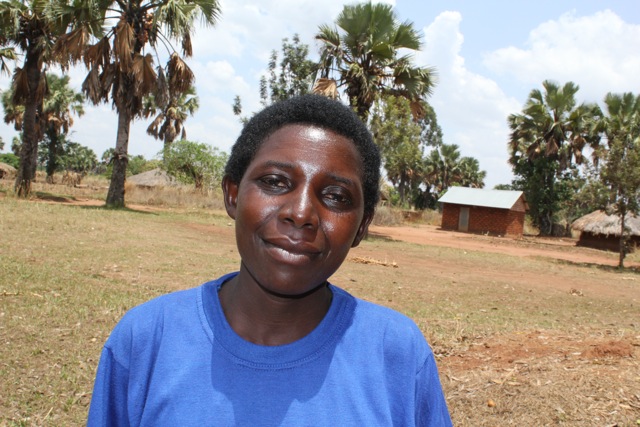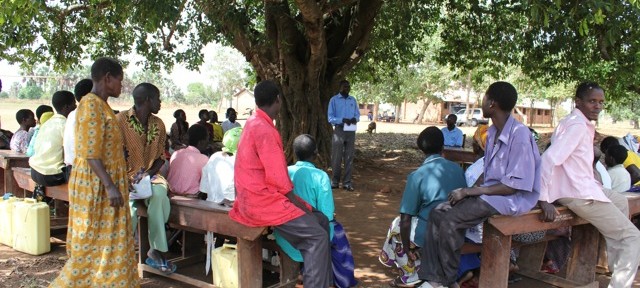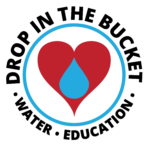While doing our project follow up in Uganda, I was thrilled to see how well our Village Savings and Loan Associations were coming along. We now have 13 groups, which each consist of 30 members.
The Village Savings and Loan Association Program or VSLA is a very-structured system of saving, borrowing and lending of money generated from village contributions. It was designed to be simple enough to verbally explain that even illiterate members of the community can easily understand how it works. The reason VSLA’s are able to be so self-sustaining is because any money borrowed must to be used for income-generating activities and all financial decisions must be made by the group. Once a year the interest earned is divided among the association, based on the amount each person has contributed.
Whenever possible, we now set up VSLA’s in villages after we have installed a well or sanitation system. We have found that because the villagers have a financial stake in the project they are far more committed to keeping the well working than when we were previously just setting up water committees.

The first VSLA association I visited was at Alworo Primary School in Lira, Uganda. This school has three groups. When we arrived, we received a very warm greeting from the members, which I quickly noticed were 90% women.
On this particular day, along with wanting to document how the groups were doing, we also mobilized them to discuss a small problem of someone vandalizing the toilets.
Along with promoting small-scale economic development within the community, the VSLA also becomes a well-organized advocate for proper maintenance of the water and sanitation facilities. The group unites the school and community, as they collectively manage the facilities and monitor the water user fees (money paid by the members of the community that can afford to pay to keep the well working). This is also an enormous benefit when addressing problems.
On this day, everybody listened to the concerns, offered suggestions and collectively decided the way forward. They even called for the chairman of the PTA, who wasn’t a VSLA member, and convinced him to bring the issue before the PTA in order to include the parents in efforts to address the problem. This is just an added benefit of this wonderful group. But the most exciting thing is hearing about all of their little businesses.

Alex Ogwang (pictured above) has 7 children and used his loan to start buying animal skins (like goats and sheep). He then sells them to local agents who work for companies making leather shoes, belts and bags.
He uses part of his profit to pay his children’s school fees and recently bought a piglet with the remainder. Although, he’s a little concerned that some of the pigs in the village have been dying from sickness, he likes his little piglet and doesn’t want to sell it, even though he is concerned it might die. He says he really wants to wait and see how big it’s going to grow.

Esther Okulo bought a mama pig with her loan. She sold three of its piglets and decided to keep three. With her profit from the first three piglets, she started cooking meals at the local trading center, an area within the village where people buy and sell things. She has two children and has decided to put most of her profit toward educating them. They are both currently enrolled in a local boarding school.

Polly Akulo has four girls who are all attending school. She buys cassava, a local root similar to potatoes, which she dries, peels and packages for selling. It’s a little bit like village fast food, for people on the go who need something to eat. She is making a decent profit from specializing in her cassava business. After her children’s school fees were paid, she used the rest of her profits to buy a calf. Once it’s full grown, she plans to keep the milk for her family and sell its calves.

Celina Ocen is running several successful businesses and doing very well. In 2003, her husband was shot and killed, leaving her a widow with eight children.
As with everybody I interviewed, Celina is using part of the profit to pay her children’s school fees. Two of them are enrolled in secondary school and another is attending a local private school. One of her businesses is selling chickens. Her family eats the eggs and she sells the chicks to purchase schoolbooks for her kids. Her thriving business has even enabled her to hire people to tend to her garden, an activity that often results in children missing school.
We have found that the most common reason for pupils dropping out of school has to do with money. And VSLAs seem to really help address this in a simple way.
Along with the small businesses, these members are also earning interest on their savings, which is shared out equally at the end of each year.
Overall, I’m learning that attitudes about education differ widely from area to area. The people in these VSLA groups all seem very interested in their children attending school. We are now trying to pinpoint key differences between those who are and those who aren’t invested in education. Could it all boil down to money? Would these parents be more interested in their children’s education if it were not such a financial burden? Is peer pressure a factor? We plan to keep monitoring these groups and collecting data to determine what is working and why.
So far I can tell you that VSLA is an exciting concept that does help! These groups are making a financial impact on the lives of these peoples, in a very sustainable way. We hope to eventually have the funding to form VSLAs as a standard part of our program alongside every well or sanitation system we construct. This is a goal we will strive to obtain.
Categories
Real Stories from one of our Village Savings and Loan Association (VSLA) Programs

